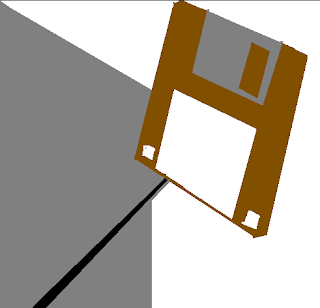Metronome - musical tool.
If you are a musician, one of the most useful tools is a metronome. It graphically displays the beats for you to follow while playing music.One particular program is all text based so it will run on a variety of systems even without a sound card. To invoke the program, you use the program name followed by the speed you want to use.
Then the program will start. The program uses a simple cursor to mark the time of the beats.
The program seems to do some compensation to keep the metronome accurate.
To build the program, you would:
$ gcc metronome.c -o metronome
Here is the code:
#include <stdio.h>
#include <stdlib.h>
#include <unistd.h>
#include <stdint.h>
#include <signal.h>
#include <time.h>
#include <sys/time.h>
struct timeval start, last;
inline int64_t tv_to_u(struct timeval s)
{
return s.tv_sec * 1000000 + s.tv_usec;
}
inline struct timeval u_to_tv(int64_t x)
{
struct timeval s;
s.tv_sec = x / 1000000;
s.tv_usec = x % 1000000;
return s;
}
void draw(int dir, int64_t period, int64_t cur, int64_t next)
{
int len = 40 * (next - cur) / period;
int s, i;
if (len > 20) len = 40 - len;
s = 20 + (dir ? len : -len);
printf("\033[H");
for (i = 0; i <= 40; i++) putchar(i == 20 ? '|': i == s ? '#' : '-');
}
void beat(int delay)
{
struct timeval tv = start;
int dir = 0;
int64_t d = 0, corr = 0, slp, cur, next = tv_to_u(start) + delay;
int64_t draw_interval = 20000;
printf("\033[H\033[J");
while (1) {
gettimeofday(&tv, 0);
slp = next - tv_to_u(tv) - corr;
usleep(slp);
gettimeofday(&tv, 0);
putchar(7); /* bell */
fflush(stdout);
printf("\033[5;1Hdrift: %d compensate: %d (usec) ",
(int)d, (int)corr);
dir = !dir;
cur = tv_to_u(tv);
d = cur - next;
corr = (corr + d) / 2;
next += delay;
while (cur + d + draw_interval < next) {
usleep(draw_interval);
gettimeofday(&tv, 0);
cur = tv_to_u(tv);
draw(dir, delay, cur, next);
fflush(stdout);
}
}
}
int main(int c, char**v)
{
int bpm;
if (c < 2 || (bpm = atoi(v[1])) <= 0) bpm = 60;
if (bpm > 600) {
fprintf(stderr, "frequency %d too high\n", bpm);
exit(1);
}
gettimeofday(&start, 0);
last = start;
beat(60 * 1000000 / bpm);
return 0;
}
Good luck and have fun.





Comments
Post a Comment